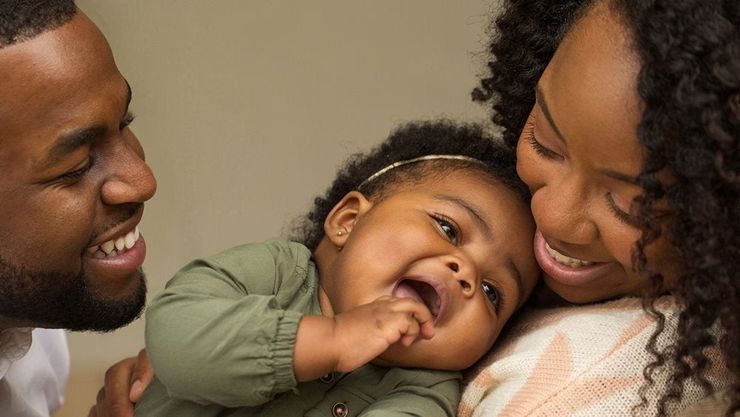Introduction: When Love Hurts Instead of Heals
Marriage is often seen as a safe haven—a partnership built on love, trust, and shared dreams. In Nigerian culture especially, marriage is celebrated as a union that not only connects two people but also entire families. Yet, behind the wedding photos and cultural expectations, some marriages become silent prisons where emotional pain replaces joy.
Unlike physical abuse, emotional abuse doesn’t leave visible bruises. Instead, it quietly erodes a partner’s confidence, self-worth, and sense of safety. A wife may smile at family gatherings while silently breaking inside from years of belittling words. A husband may provide financially but feel stripped of dignity through constant criticism and control.
What makes emotional abuse even more dangerous is its invisibility. Outsiders often dismiss it with phrases like “All marriages have challenges” or “At least he doesn’t hit you.” But emotional scars can be just as devastating as physical ones, sometimes lasting even longer.
The truth is simple: love should heal, not hurt. This article explores how to identify emotional abuse in marriage, why it’s so damaging, and the practical, spiritual, and emotional steps you can take to heal and rebuild your life.
What Emotional Abuse in Marriage Looks Like
Emotional abuse is not about a single argument or bad day. It is a consistent pattern of behaviors designed to control, manipulate, or degrade a partner.
Common Forms of Emotional Abuse
- Verbal Attacks: Name-calling, constant insults, or belittling comments.
- Control Tactics: Dictating what you wear, who you talk to, or where you go.
- Gaslighting: Making you doubt your reality by denying events or blaming you for things you didn’t do.
- Silent Treatment: Refusing to talk or withholding affection as punishment.
- Excessive Jealousy: Monitoring phone calls, accusing you of cheating without cause.
- Financial Control: Limiting access to money, forcing dependence.
- Dismissive Behavior: Ignoring your opinions or minimizing your feelings.
👉 According to the National Domestic Violence Hotline, emotional abuse involves tactics that erode a partner’s independence, confidence, and sense of safety.
Cultural Example
In some Nigerian homes, a husband constantly mocks his wife for not bearing sons. Though he doesn’t raise his hand against her, his words crush her spirit daily. That’s emotional abuse—not “normal marital behavior.”
Emotional Abuse vs. Healthy Conflict: Knowing the Difference
Arguments happen in every marriage. What separates emotional abuse from healthy conflict is intention and pattern.
| Healthy Conflict | Emotional Abuse |
|---|---|
| Temporary disagreements, resolved over time | Ongoing cycles of insults, control, or fear |
| Focused on the issue, not the person | Attacks self-worth or identity |
| Both partners feel heard and respected | One partner dominates, silences, or manipulates |
| Leads to compromise or better understanding | Leads to fear, resentment, and confusion |
👉 In healthy marriages, conflict strengthens intimacy; in abusive marriages, conflict is weaponized to weaken the victim.
Why Emotional Abuse Is So Dangerous
Emotional abuse is often minimized because there are no visible scars. But the damage runs deep, touching mental, physical, and spiritual health.
1. Mental and Emotional Health
- Leads to anxiety, depression, or feelings of hopelessness.
- Victims lose self-confidence, doubting their worth.
- Creates feelings of shame or guilt, even when the victim isn’t at fault.
2. Physical Health
Chronic stress from emotional abuse can cause headaches, stomach issues, insomnia, and high blood pressure. Over time, stress weakens the immune system.
3. Social Impact
Victims often withdraw from friends or family. Abusers may even isolate them intentionally, cutting off support networks.
4. Spiritual Damage
For religious couples, abuse distorts the meaning of faith. Victims may feel abandoned by God or guilty for not “enduring.”
👉 A Psychology Today article notes that emotional abuse often escalates into physical abuse if left unchecked.
Subtle Signs of Emotional Abuse You Might Overlook
Some signs of abuse are loud; others are quiet but equally destructive.
- You feel like you’re constantly “walking on eggshells.”
- You second-guess every word to avoid triggering anger.
- You feel drained and anxious after spending time with your spouse.
- You no longer recognize yourself—you’ve lost joy and self-confidence.
- You constantly excuse their behavior: “He’s stressed, that’s why he insults me.”
- You fear sharing your true thoughts because of their reaction.
👉 These subtle signals show a relationship where love has been replaced with fear.
Why People Stay in Emotionally Abusive Marriages
Many people wonder: “Why don’t victims just leave?” The reality is complex and deeply tied to culture, fear, and hope.
Common Reasons
- Cultural Stigma: Divorce carries shame, especially for women in African societies.
- Financial Dependence: Some spouses cannot support themselves without their partner.
- Children: Many stay “for the sake of the kids,” though the children also suffer indirectly.
- Hope for Change: Victims cling to memories of when the abuser was loving.
- Gaslighting: Victims are manipulated into believing the abuse is their fault.
- Religious Pressure: Misinterpretations of faith encourage endurance, even in harmful situations.
👉 Example: Ada in Lagos endured years of ridicule and control because her family said, “Better to stay married than return home in shame.” This thinking trapped her until she sought counseling and found strength to leave.
Steps to Heal from Emotional Abuse in Marriage
Healing is not instant. It requires courage, intentional effort, and often professional guidance.
1: Recognize and Accept It
Stop minimizing or excusing harmful behavior. Accept that you are experiencing abuse. Naming it is the first act of empowerment.
2: Seek Support
- Share your struggle with trusted friends or mentors.
- Join support groups, online or offline.
- Work with professional counselors trained in trauma recovery.
3: Set Clear Boundaries
Boundaries protect your emotional health. Communicate what you will no longer tolerate, such as insults or manipulation.
4: Rebuild Your Self-Worth
- Write affirmations: “I deserve love and respect.”
- Rediscover hobbies, friendships, and passions lost to abuse.
- Journal your feelings daily to process emotions.
5: Strengthen Spiritually
- Pray or meditate for peace and guidance.
- Read scriptures that affirm dignity and healing.
- Connect with faith leaders who condemn abuse rather than excuse it.
6: Decide Next Steps
For some, healing means rebuilding within the marriage if the abuser admits fault and changes. For others, safety may only come through separation or divorce.
👉 Case Study: Chika endured 7 years of emotional abuse. After counseling, she chose separation. With therapy and faith, she rebuilt her self-esteem and found peace.
Rebuilding Trust After Emotional Abuse
If the marriage is to survive, both partners must be willing to work.
For the Abuser
- Acknowledge the harm caused.
- Commit to therapy or counseling.
- Replace harmful behaviors with respect and empathy.
For the Survivor
- Rebuild trust gradually, not overnight.
- Monitor consistency—change must be proven, not promised.
- Seek accountability through mentors or counselors.
👉 Without genuine change, reconciliation risks repeating cycles of abuse.
Daily Practices for Healing
Healing is ongoing. Incorporating simple daily practices strengthens recovery.
- Morning Affirmations: Start with statements like “I am worthy of love.”
- Gratitude Journaling: Write down 3 positive things each day.
- Healthy Friendships: Surround yourself with supportive, uplifting people.
- Physical Self-Care: Exercise, eat well, and rest to rebuild energy.
- Spiritual Anchors: Pray, meditate, or engage in rituals that bring peace.
- Small Wins: Celebrate every step—like saying no to toxic words or reclaiming a lost hobby.
Key Takeaways in Identifying vs Healing
| Stage | What It Looks Like | Healing Approach |
|---|---|---|
| Identification | Constant criticism, gaslighting, or control | Naming abuse, refusing to normalize it |
| Emotional Impact | Anxiety, low self-worth, confusion | Counseling, affirmations, journaling |
| Spiritual Impact | Feeling unworthy or disconnected from faith | Prayer, scripture, supportive faith leaders |
| Recovery | Setting boundaries, regaining identity | Therapy, safe friendships, consistent self-care |
Real-Life Nigerian Scenarios
- Ngozi’s Story (Isolation): Her husband cut her off from friends. Through online support groups, she regained confidence and eventually left.
- Ibrahim’s Story (Silent Abuse): His wife constantly mocked his career. Counseling helped him recognize it as abuse and set boundaries.
- Amaka’s Story (Healing Together): Both partners sought therapy. With accountability, they rebuilt their marriage on respect.
Conclusion: You Deserve to Heal
Emotional abuse may be invisible to others, but it leaves scars that run deep. Recognizing it is the first step; choosing to heal is the second. Whether healing happens within the marriage or outside of it, know this: you are worthy of love, respect, and peace.
Don’t let culture, fear, or shame silence your voice. Healing is possible—with support, self-care, and courage, you can reclaim your life.
👉 Final Takeaway: True love uplifts, not destroys. Healing from emotional abuse isn’t just about survival—it’s about rediscovering your worth and embracing a future filled with freedom and dignity.





